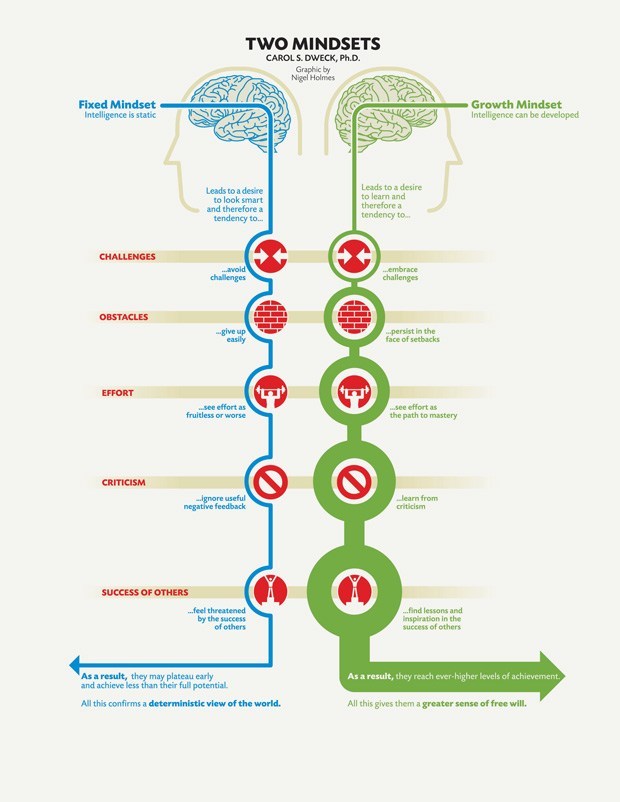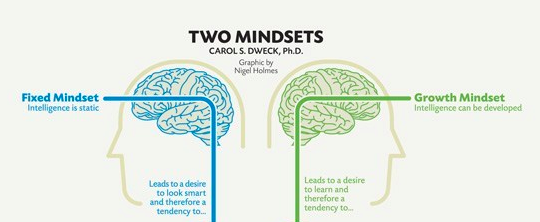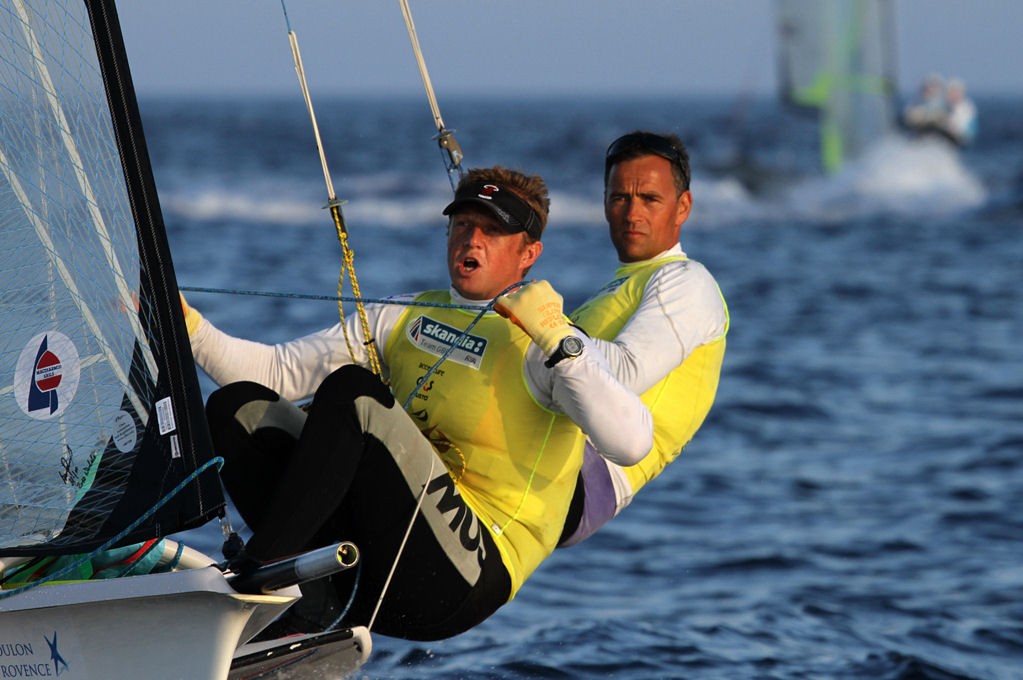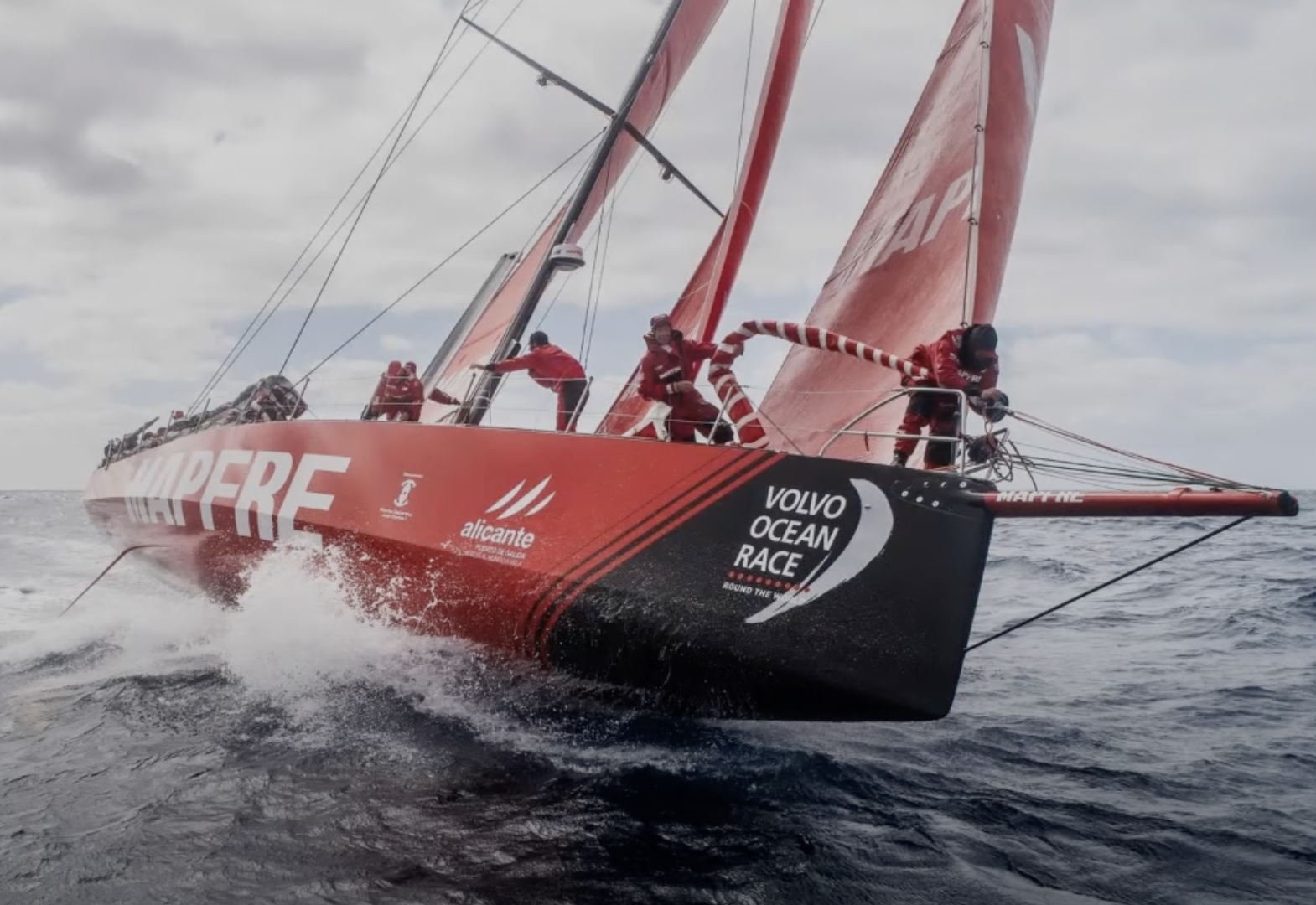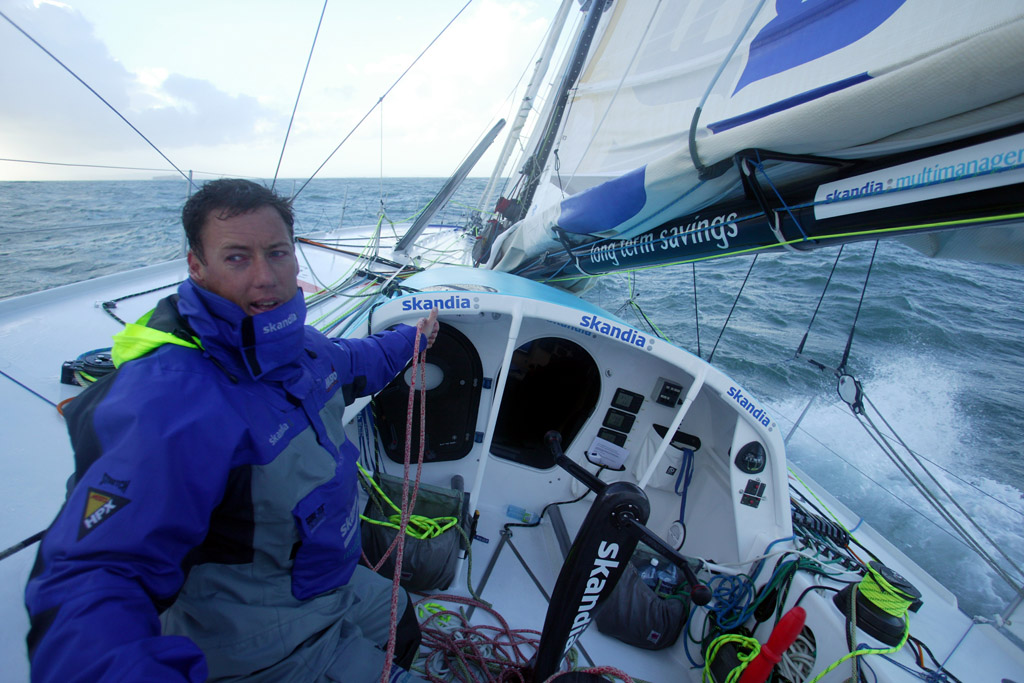Like many top professional sailors, Paul Cayard is a perfectionist. Having won the Whitbread Race at this first attempt in 1997, he was a useful guy to get on board Grant Dalton’s 2001 campaign for the Volvo Ocean Race aboard Amer Sports One.
There must have been times, though, when some of his team mates were wondering if his passion for boatspeed bordered on the excessive. “I was telling the guys on Amer, in any stability situation, when you move a PC yarn,” he says while picking up a mouse cable as an example, “from the middle of the boat to the windward side, it is faster, so why not do it? Every single tiny thing – if you stack it from here to here – it’s faster. It just is – you don’t have to study it, hope for it, pray for it, it just is.” As Scotty on the USS Enterprise might have observed: “You cannae change the laws of physics!”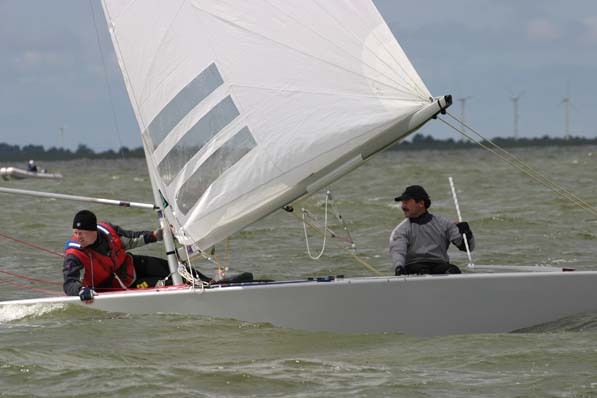
Even Dalton, who thinks of himself as a man with his eye on the detail, admitted to being gobsmacked by Cayard’s obsessiveness. Cayard makes no apologies for that. He cites an example from the last leg: “I see a guy take off his heavy weather jacket and fling it on the leeward bunk, and I say: ‘Why don’t you take it and hang it up on the windward side? What are you thinking about – it’s just brain fade?’
“There’s just no doubt that that thing has to be stacked on the windward side. That’s what I call one of those guaranteed gainers. You have got to make sure bank all those, because there are all those other times when you’re dealing with a weather forecast or maybe human error, which you barely have total control over, that you’ve got to be ahead with all these other things that are total givens.”
For Cayard, such situations are simple. There is a right way and a wrong way, and so there is no difficult decision to be made. You just do it. It gets tougher when you face a dilemma, a hard choice, especially in a complex big boat campaign when there are many difficult choices to be made all at once.
Again though, Cayard has a good way of sifting the really important decisions from the less vital ones. “If a team has been chasing after something for a year and a half and still nothing has come from it then it must be forgotten. Whether it is a decision about the boat, the crew or whatever, there is often a tendency to keep discussing and worrying about something, wasting energy when you just have to make a decision.
“One of my philosophies is that if two things are so similar that it makes it hard to decide then you should just pick one, because it doesn’t matter. It is important not to waste any more time on it because there is probably something else that will make much more difference, where you really need the time. If you get it wrong in that case you can lose a lot, but if two things are going to have a similar outcome, it’s not worth wasting any more time on it, since in the end it will be the same anyway.”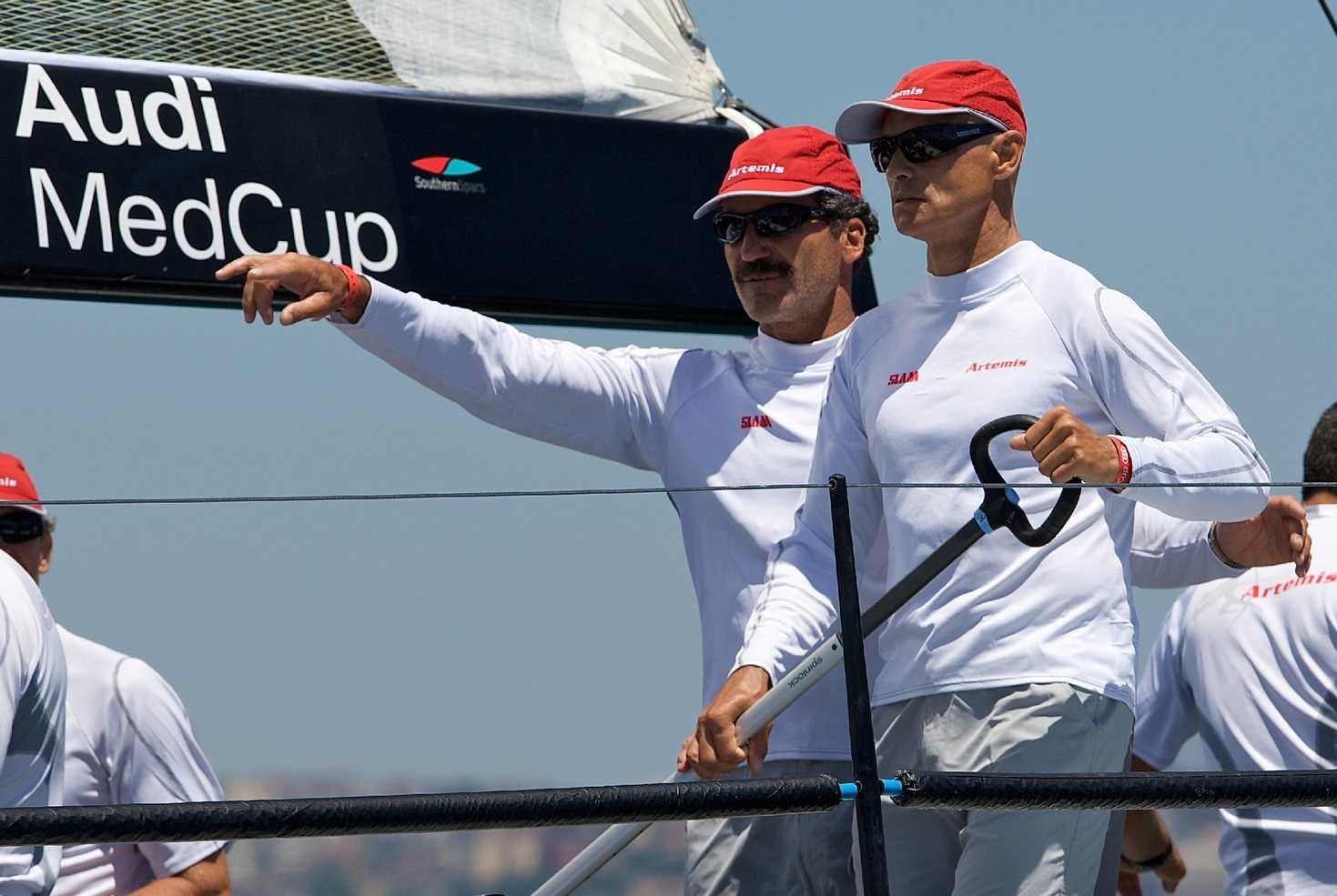
© Ian Roman/ Audi MedCup: Paul Cayard offering advice to Torbjorn Tornqvist
Some things are no brainers - more righting moment is always a good thing, for example. Other decisions are more difficult, but ask yourself if doing one thing or the other is really going to make a difference. If you can’t make your mind up, toss a coin, choose that option, and get on with making more important decisions.

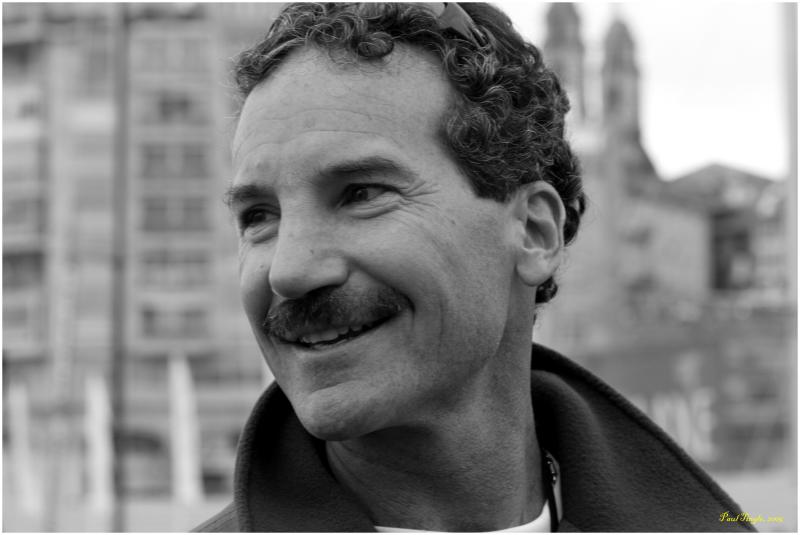 Paul Cayard calls into Sailing Talk from San Francisco, where at the ripe old age of 5-0 he'll soon be racing a Five-Oh (geddit?!) in the 505 World Championships with dinghy legend Howie Hamlin, himself no spring chicken. Not surprisingly, Paul's also got something to say about the 'stored power' should-they-allow-engines-in-the-America's-Cup debate. Justin Chisholm reports from the Mirror Worlds which are concluding in North Wales....
Paul Cayard calls into Sailing Talk from San Francisco, where at the ripe old age of 5-0 he'll soon be racing a Five-Oh (geddit?!) in the 505 World Championships with dinghy legend Howie Hamlin, himself no spring chicken. Not surprisingly, Paul's also got something to say about the 'stored power' should-they-allow-engines-in-the-America's-Cup debate. Justin Chisholm reports from the Mirror Worlds which are concluding in North Wales....